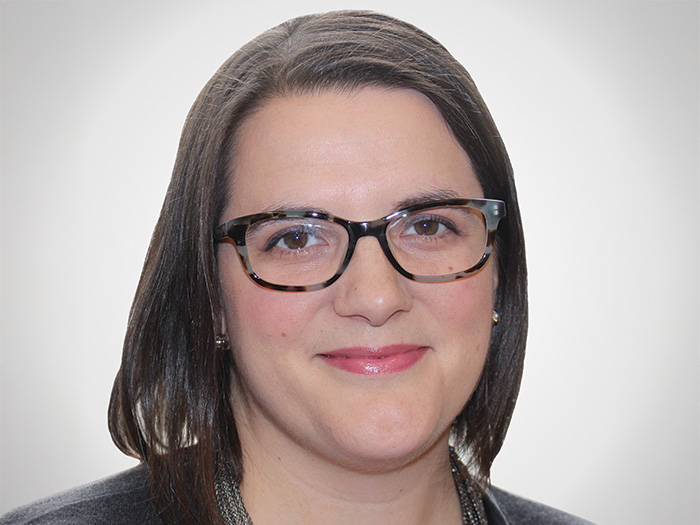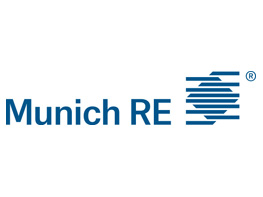Transparency, Authenticity, Empathy and More: What 40 Years of Brokering Experience Taught Vikki Stone
I’ve spent 40 years in the commercial insurance industry. My focus has always been to succeed, but only if it is through the success of my clients.
If you wait for clients to come to you, for the claims to diminish themselves, you’re in the wrong line of work. To achieve success in this industry, you must be willing to work hard, be vulnerable and commit to your clients.
Choosing a path of transparency, being perhaps a bit unconventional yet polished, competitive and driven: These traits are all a part of the success formula.
Knowledge from Experience
As a third-generation insurance broker, I grew up in the industry and have observed many brokers over the years — including their experiences and industry knowledge — and I have established my own.
But what has been the best connection for me has always been the ability to empathize with business owners. Yes, it is important to know your trade and the technicalities of the industry, but you must be able to level with your clients in order to relay information in a way that benefits them.
Being an insurance broker is more than just exercising policy knowledge; it takes a level of dedication to your client.
There are certain things you learn from the experience of being a small business owner and not from a classroom or certification courses. That working knowledge and being in the shoes of a business owner gives you insight into how lonely it can be, making you feel like you have the world on your shoulders.
Our job as brokers is to dilute this feeling, acting as a cheerleader and protector in their corner. For some people, having someone they can trust with their livelihood can make all the difference.
When it comes to client success, there must be no ceilings and no walls.
Establish these expectations from the beginning, giving them stability of coverage and protection to work from. It should feel more like a partnership than a basic business transaction between a broker and client. It is helpful to view yourself as an extension of their business, acting as though their success is your success.
Empathy, Efficiency, Results
As a long-time player in the field, these are the things I pass along to anyone who is just starting out in their career.
You absolutely must be empathetic towards your client. Now, there are a few ways to get you there. Be authentic, be transparent, know your client, know your industry and, lastly, act with efficiency.
Knowing your client and their business is really the only way to get dependable results and information. I was once able to take a client that was six weeks from renewal and address some major workers’ compensation losses and premiums — because of how we knew the business itself.
This was possible, because we got to know them well quickly, established a strong relationship from the get-go and dove into the ins and outs of their company with urgency.
Because of this, we were able to leverage the information we needed in a very short amount of time.
Reviewing claims, policies and the facility itself, and promptly creating a report to implement change, support and feedback: Eventually, this turned into a creative coverage idea moving forward.
Supporting that came with a Broker of Record letter for all their policies.
The even bigger achievement was the growth of the client’s understanding of workers’ compensation and the fact that it is more about creating a company culture that reflects safety and good habits than it is about focusing on the claims themselves.
When working with clients on sensitive materials, it is important to act with awareness. Being the diplomat in some circumstances and having a “take no prisoners” attitude in others can be a good thing, when you’re advocating on their behalf.
But when it comes to the one-on-one client relationship, empathy and emotional intelligence go a long way. It takes a direct connection when you’re working to balance the act of generating business in a relationship and offering appropriate coverage to a client.
These are the decisions your clients depend on you to make the right way.
With a trusted relationship, your recommendations will mean big things for their business and for their bottom line. This is where it is absolutely necessary to know your industry, because there are always more comprehensive policies than the industry average presents.
For example, in transportation and manufacturing, I worked with a client that was overpaying for misguided coverage.
After putting in the effort to get to know the client and their industry, we found an opportunity to combine coverage, which had not been considered before. Despite some financial benefits of multiple coverage plans, giving the client the lowest premium for the most versatile coverage was the right thing to do.
What a Trusted Broker Truly Is
You must become the trusted broker, not because it’s what everyone expects but because you have to be the broker your clients need.
A word of advice: The devil is always in the details. Learn that early and it will save you a lot of time and effort.
Communicate all of the specific information early and your clients will thank you in the long run. If you take the time to review the particular elements of the client’s circumstances, you will usually find that there is more going on than initially meets the eye.
For instance, I once took a 17-year competitor-brokered client into a Broker of Record in as little as a week.
Sometimes, all it takes is the commitment to find a better solution, because odds are if you look hard enough, you will find one.
In this case, the client was unknowingly being underserved due to a lack of attention and care on the broker’s behalf.
I managed to offer them a new package and obtain 5% premium savings on the deal, and walked out with a Broker of Record letter — not for the premium savings but for the thought and care behind the service I provided.
Your Authentic Self
What separates good brokers from the crowd is authenticity.
When it comes to client management, do not shy away from having hard conversations. Be adamant about doing the right thing by all clients, every single time.
Once this relationship is established, do not be afraid to communicate increasing premiums or bad news (no one likes to be blindsided by tough surprises), because these are the things you do without question when you have your clients’ best interests in mind.
If you act in this way with authenticity, then the rest will fall quickly into place.
Not second to authenticity is transparency — for me, it’s the name of the game.
For client relationships to be successful, there should be nothing left unsaid. Having the ability to practice transparency and build trust will put you farther ahead than any other practical learning endeavor ever will.
As a broker, you must place ultimate value on building these relationships, in order to be a better advocate for clients — place a premium on emotional intelligence, as it is necessary to find success within your partnerships, whether that be in direct relationship with a client or when advocating on their behalf.
There is a clear distinction between personable brokering and a lack thereof.
With enough experience, it becomes apparent that your clients are your bottom line, and if you want to be successful, they must always stay that way. &








